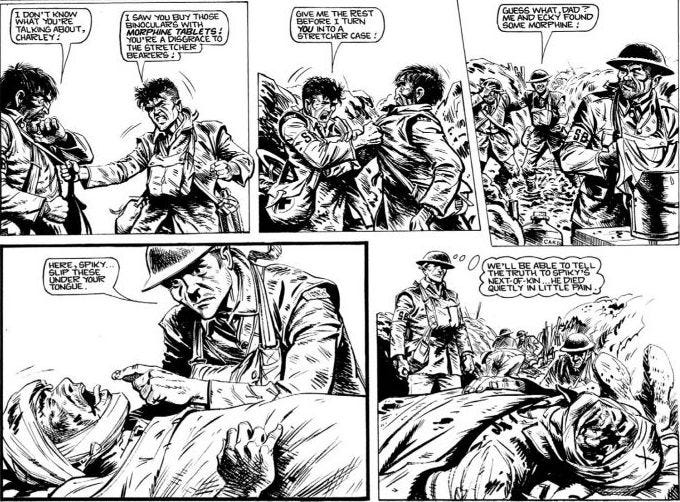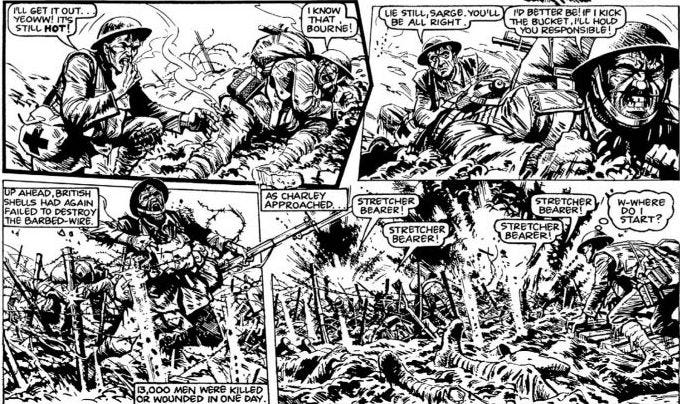Secret History: Charley's War - The Stretcher Bearer
All the issues that come up in Charley’s War, and notably in the stretcher bearer story, such as shell shock, now known as PTSD or complex PTSD, are still around today.
Welcome to my Secret History of Comics: my new book serialised on Substack. The first section was on Marshal Law: now it’s all about Charley’s War.
If you’re joining me for the first time, you can read the intro to the Secret History here, it’s available for everyone, and so is the intro to Charley’s War.
Every subsequent post has a free preview, but if you want access to my entire rant post, you’ll need to subscribe. Full access to ALL of my Secret History of Comics as I release them every week (plus other perks, check them out), will set you back just £5 per month or £50 per year, and it helps me to continue giving you my best writing. I even have a free seven-day trial on Iconoblast, so you can try it first.
To make amends for being in a firing squad, Charley volunteers to be a stretcher bearer, one of the most dangerous jobs a Tommy could have. I was taking a real risk here because this would be the first time in a war comic the hero was a non-combatant. It worked. If it had been unpopular with the readers, editorial would have told me straight away.
Bear in mind we creators were ruled by the editors’ vote charts, which were often elaborate affairs with coloured lines zig-zagging up and down as the weeks of a story passed. If there was a sudden dip, the editor would be on the phone straight away to say, ‘Your story lost ground this week.’ Invariably that happened if it was a talking head episode. Action was always preferred. So you can see how Charley broke the rules, and the dangers of him becoming a stretcher bearer.
Now you might see all this as onerous, and hardcore comic fans certainly did. I think these older fans often felt humiliated when a story’s fate would be decided by much younger readers. Consequently, the votes were even rigged on 2000AD to suit fandom, but never on Battle as far as I’m aware. It sounds dire, but it meant that I was very much in touch with what readers wanted, even when it wasn’t obvious.
Keep reading with a 7-day free trial
Subscribe to Iconoblast to keep reading this post and get 7 days of free access to the full post archives.





